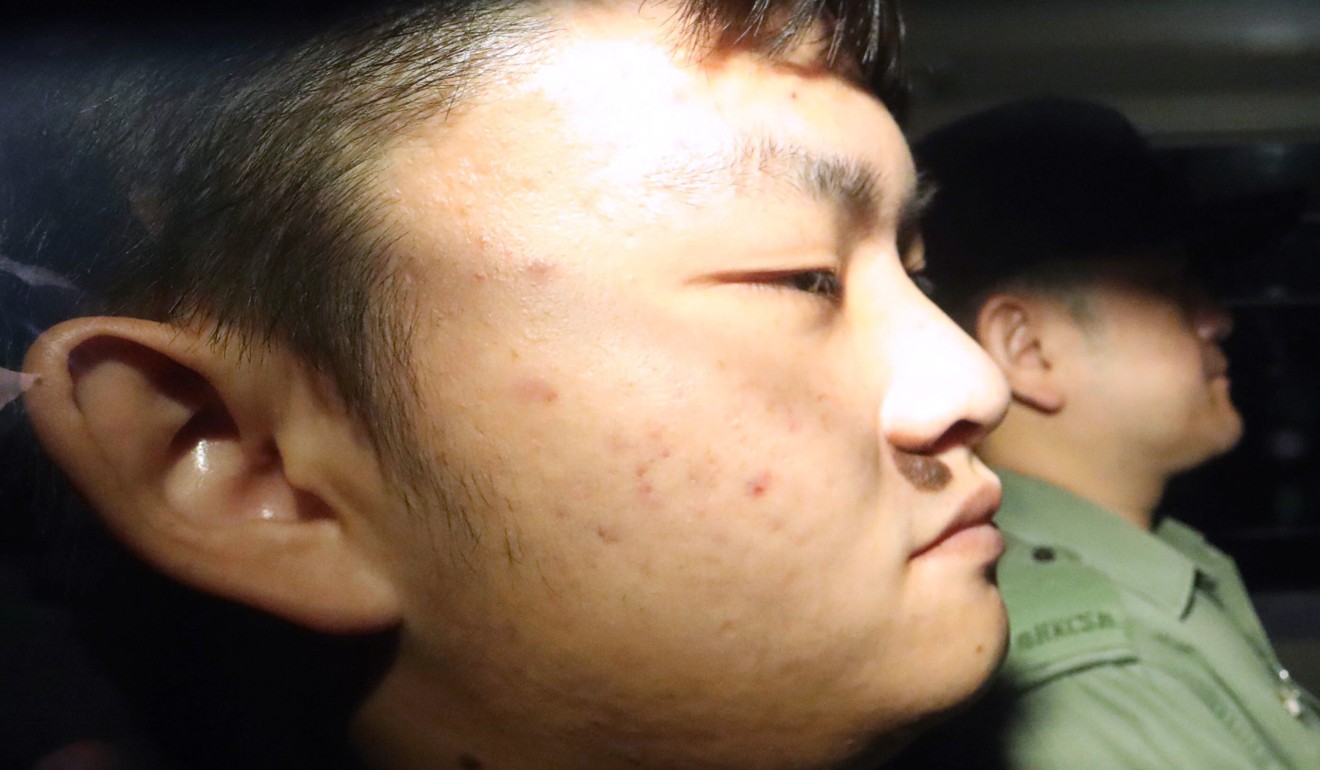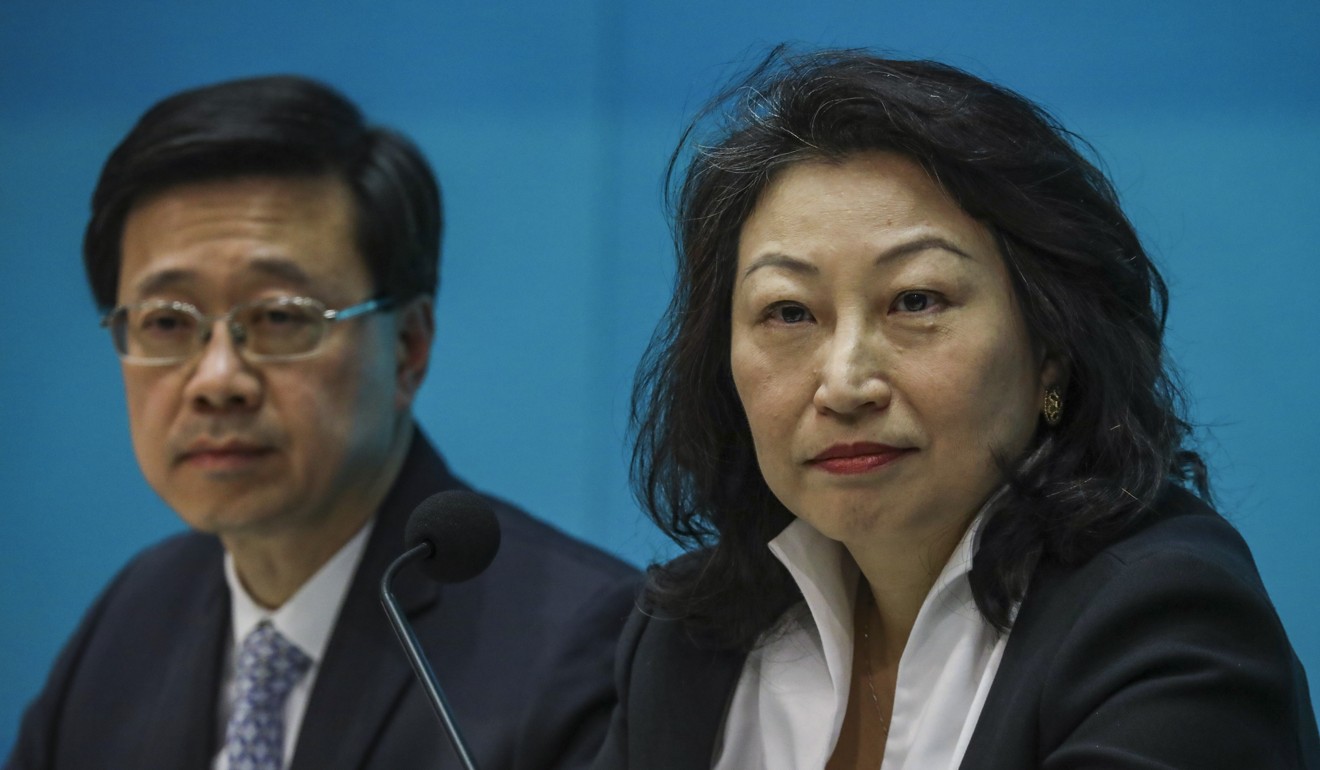
What next for Hong Kong’s problematic extradition bill?
- Political storm whipped up by introduction last month of the controversial bill shows no sign of abating
- Pro-democracy camp has vowed to do all it can to block the legislation and more drama is likely to follow

The Hong Kong government and legislature have been caught up in a storm over a contentious extradition bill introduced in April and the saga shows no signs of dying down.
Tens of thousands of citizens took to the street earlier this month to protest against the proposal that would allow the transfer of fugitives to any jurisdiction Hong Kong does not have a formal extradition agreement with.
Fears centre on the possibility of extradition between Hong Kong and mainland China, which critics say lacks a strong enough legal system. Several counterproposals were put forth by legal scholars and lawmakers but the justice and security ministers on Tuesday shot them down, calling them impractical.
Both repeatedly refused to say categorically that Hong Kong could and was prepared to reject a request from Beijing, despite claiming it had a full right to do so.

What triggered the rule change?
Chan Tong-kai, 20, was accused of murdering his pregnant girlfriend in Taipei last year but fled back to Hong Kong, where he was arrested on a related money-laundering charge. He was sentenced to 29 months in April but with no extradition arrangement between Hong Kong and Taiwan, Chan could not be sent back to the self-ruled island to face a murder charge.
The Hong Kong government has claimed the urgency to pass the bill by July is so it can extradite Chan before his possible release in October, to plug the “loophole” in the current system.
What are the counterproposals?
The major counterproposals focused on three areas: excluding extradition to the mainland; giving Hong Kong’s courts extraterritorial jurisdiction; or a fair-trial clause.
Pro-establishment lawmaker Michael Tien Puk-sun and leading legal scholar Albert Chen Hung-yee proposed excluding Hong Kong residents from being extradited to the mainland, with crimes across the border heard locally instead.
Two professional legal bodies, the Bar Association and the Law Society, as well as Civic Party leader Alvin Yeung Ngok-kiu, proposed allowing local courts to hear overseas murder and manslaughter cases involving Hong Kong suspects and/or victims, while Bar Association chairman Philip Dykes and leading human rights scholar Johannes Chan Man-mun proposed that an extradition should only be granted if Hong Kong courts were satisfied the accused would receive a fair trial overseas. Secretary for Justice Teresa Cheng Yeuk-wah rejected all three.
Was the rejection justified?
Cheng claimed the alternatives would bring “fundamental change” as local courts mostly dealt with crimes committed within Hong Kong. Lawyers were quick to point out some criminal acts that took place overseas – including theft, forgery, bribery and sexual abuse against minors – could already be tried under current Hong Kong law.
Johannes Chan said Cheng had exaggerated the problem while human rights lawyer Michael Vidler highlighted that he had personally represented clients locally who were involved in an offence that happened on the mainland.
Cheng pointed out that even if the courts’ jurisdiction were extended, it could not be applied retroactively and would therefore not solve the Chan Tong-kai case.
Critics said this view was too narrow, with Yeung arguing murder anywhere was a crime and that no one was creating a new offence.

What’s next for lawmakers?
While the government has already rejected calls to scrap the law, security chief John Lee Ka-chiu on Tuesday showed he was open to discussing not extraditing Hong Kong citizens – although he did not immediately endorse the plan.
“We have the absolute right not to extradite anyone … without giving any reason,” Lee said.
Politicians are also eyeing a time limit on how far back the extradition bill could cover, and to only include offences that carry jail terms of more than three years in Hong Kong.
There remained much uncertainty over scrutiny of the bill, however, and whether it could secure passage by July.
The pro-democracy camp has already vowed to do all it can to block the legislation and more drama is likely to follow.
On Saturday, the pro-democracy camp will hold its own meeting in parallel with the third Legco bills committee meeting, with each side claiming theirs to be legitimate after a drawn-out dispute over who is the official committee chairman.